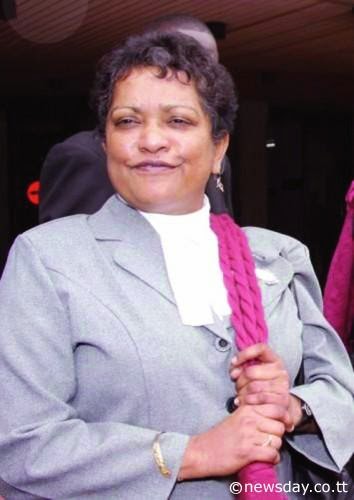Saving The Caribbean
One Caribbean Nation.
The opportunity to participate in last week’s CARICOM Heads of Government meeting served to focus my mind around the existential threat to the Caribbean posed by the COVID-19 virus. Caribbean imagination can be forgiven if it is beginning to head in this direction of thought—that the cascading combination of global warming, annual hurricanes, economic downgrades, and coronavirus constitutes a cocktail of apocalyptic proportions. The daily destruction of life, and the diminishing of our way of life, have opened up the inner strengths and weaknesses of Caribbean society and sovereignty.
Saving the Caribbean
 |
| Sir Hilary Neckles |
For me, the meeting settled two important matters. Paramount is the issue of where we are in respect of the regional migration and management of the coronavirus. With glowing pride, I congratulate our prime ministers, whose bold strategic actions certainly created the context for all of us to save the Caribbean. Having acted with swiftness and seriousness, they provided the people of the region with the opportunity to get ahead of the COVID-19 curve. This early call-to-action accounts for why the region has recorded below par infection and death rates. We shall hear more of this achievement in the future as it will be the core narrative that guides the successful reopening of the tourism lifeline.
Then there was the image of our university—The University of the West Indies—rising in its role as a dependable partner on multiple anti-COVID-19 fronts, but particularly in the areas of reliable medicine and relevant science. It is satisfying to see on display the research results of UWI science in the field. Our COVID-19 Task Force, led by Professor Clive Landis, provided our political leaders with the much-needed modelling and surveillance products in respect of the speed of the pandemic’s spread and its expected trajectories. Such data serves to inform evidence-based decision-making and assist in phase two of public policy pronouncements.
Holding steady, as a given, the priority of public health, while thinking through how best to manage the reopening of the regional economy, will require the mobilization of the collective wisdom that resides within CARICOM. The ideal is to achieve both objectives simultaneously rather than sequentially. The time is fast approaching to propose regional timelines for the summer.
The creation of competitive economic sectors and industries in the Caribbean has been a Herculean entrepreneurial task, and the global elimination of our customary edge can be swift. With this in mind, the urge to retain our edge must be encouraged, tempered only by the restraints of science.
A Triple “S” strategy could therefore guide our regional resolve. Foregrounding as we are the SCIENCE of the situation; insisting upon regional SOLIDARITY as the best policy framework; and keeping a laser-like focus on the SUSTAINABILITY of our sovereignty is an effective way to proceed.
COVID-19 has torn the roof off our Caribbean home. It has revealed the weaknesses of its internal structures and the inequalities of its domesticity. For 60 years, inhabitants have laboured to build our independence. Now, sadly, once again, we see how the fruits of freedom have eluded the marginalized; many in such a way that threatens the foundations of the just democracy we still crave.
This, we know, is part of the legacy of plantation America, from Toronto to New York, through the Caribbean, into Brazil and beyond. The poor are the most vulnerable, and the death has descended upon their vicinities.
Prime Ministers may wish to consider the establishment of a CARICOM Commission of Enquiry into the Corona Corrosion of the Caribbean community.
There are some specific matters to be researched and fixed for the future in order to build the resilience required to hold and uphold the spirit of our people. Maybe The UWI Social Sciences and Humanities can carry this forward.
Then there is the issue of the public capacity for compliance with the social distancing policy that is the key to our survival. There is a tendency to confuse the capacity to comply with a lack of discipline. From what I have observed in many impoverished regional communities, the universal desire to comply with public policy is breached by the material pressures to survive. Here is a learning moment in which the victim should not be blamed but appropriately resourced in order to comply.
But the search for an appropriate level of public discipline as a necessary practice to achieve policy efficiency might also require, at this time, the reaffirmation of the ‘social contract’ on which our post-independent societies are built. Between the 1948 Montego Bay Conference, when a ‘just democracy’ model was declared as the vision, and 1962 when Jamaica and Trinidad and Tobago led the way and paved the road to sovereignty, the approved social contract promised equality and equity for all. It was also understood that this ideal construction would be an inter-generational project with no shortcuts. Maybe the COVID- 19 calamity is calling for a rekindling of the regional vision.
Many questions are being asked as we seek success with our current tools. Is it time to publicly reaffirm commitment to the values and principles of the old social contract in order to assist with the regional social management of COVID-19 over the next five years? Would such an ideological mobilization of our mentality facilitate the higher level of public discipline the region will require? Whatever the answers, what is certain is that solidarity with the regional leadership of CARICOM is the vehicle on which we must all travel to transcend the COVID-19 test. The ‘One Caribbean’ approach is about SOLIDARITY, SUSTAINABILITY, and respect for the role of SCIENCE. We shall win this viral war. Our history tells us why. Let us keep our distance and strengthen our resolve.
Professor Sir Hilary Beckles is the Vice- Chancellor of The UWI.



Comments